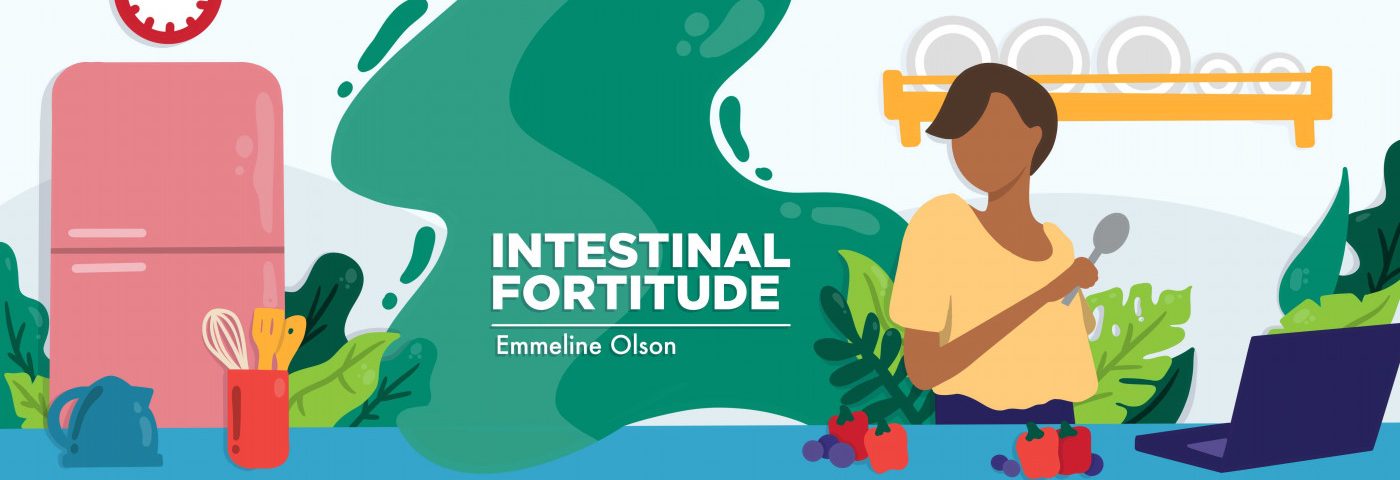Valentine’s Day is in a few days. I told my husband, Patrick, that I wanted to spend the entire day in bed. I burst his bubble when I reminded him that after my second dose of Moderna’s COVID-19 vaccine tomorrow, I probably won’t feel like celebrating at all.
Before I met Patrick, I thought I understood love. In 1998, I married my high school sweetheart. Five years later, we divorced. After a couple of brief rebound romances, I took a long break — almost seven years — from dating. During this period of “me time,” I learned I had to love myself before I would be ready to love someone else again.
Self-love can be difficult with a disease like Crohn’s or ulcerative colitis. Inflammatory bowel disease (IBD) can lower your self-esteem, force you into isolation, or leave you hopeless. Although I was in a relationship when I discovered I had primary sclerosing cholangitis, an incurable autoimmune liver disease, I was single when I was diagnosed with Crohn’s in 2006. Self-awareness helped me deal with my illness when I had nobody else.
Accepting my faults
My first step toward self-love was accepting my imperfections. I’ve always been self-conscious of my weight. Being Filipino, I come from a culture where food is synonymous with love and hospitality. When I’m carrying a few extra pounds, my family calls me “healthy” or “taba taba,” a Tagalog term of endearment for “You’re fat,” while insisting I eat more.
My body image plummets more when I’m having a Crohn’s flare. My clothes are either too tight from water retention caused by prednisone or too loose from when diarrhea or being unable to eat solid food causes extreme weight loss. Strangers have assumed I was pregnant when gas or ascites distend my abdomen.
Once I accepted that I can’t always control the physical changes caused by my diseases, I was able to apply the same logic to my psyche. I can’t change some aspects of my personality. However, I can modify my behavior or perspective to maintain a healthy outlook. Acknowledging my faults allowed me to accept who I was as long as I knew I was doing my best.
Room for growth
A consequence of self-acceptance was finding room for improvement. I embarked on a spiritual journey of introspection and reflection. Through my growing relationship with God, I recognized that even though I was physically by myself, I was never alone.
The universe didn’t revolve around me, but I was an integral component of it. I could love myself by serving others. Instead of wallowing in self-pity, I surrendered my health to a higher power and focused my time on volunteering and giving back to the community.
Once my emotional and spiritual states were in balance, I turned to my physical condition. I originally got into martial arts for fitness and self-defense. Before learning any kicks or punches, I had to master my energy, or “ki.” A “kihap,” or yell, reinforces the execution of the strike with the power of one’s concentrated energy. A strong kihap regulates breathing, too.
In the beginning, my kihap was barely a whisper. I was self-conscious and meek. My kihap became louder as I became stronger. And as I became stronger, I became self-assured. Martial arts gave me the courage and stamina to conquer my health issues. It also empowered me to become a more outspoken healthcare advocate.
Happily ever after
The turning point in the love affair with myself was enjoying my own company. The silence of a quiet house allowed me to lose myself in a book and write in my journal for hours. I went to the movies and out to eat by myself, grateful that I didn’t have to compromise or converse with anyone else.
Self-reliance led me to discover the limits of what I could do on my own and when to seek help from others. I was ready to love again. I didn’t need someone to complete me. I wanted somebody to complement me.
I knew Patrick was “the one” the first time I met him. He told me he was an avid University of Alabama fan because he grew up there. Being Alabama-born, I’m an Auburn University fan. Normally, meeting a fan of the rival team wouldn’t be surprising. However, both of us moved to Texas as teenagers and hadn’t been back to Alabama in more than 30 years. He proposed to me six years ago on Valentine’s Day, and we go to Alabama for our anniversary every year.
Feb. 14 is also National Donor Day, honoring blood, marrow, organ, and tissue donors. I owe my life to the unconditional love of a 30-year-old woman who decided to be an organ donor.
The greatest gift you can give to others is yourself. If you don’t love yourself, you can’t love someone else.
***
Note: IBD News Today is strictly a news and information website about the disease. It does not provide medical advice, diagnosis, or treatment. This content is not intended to be a substitute for professional medical advice, diagnosis, or treatment. Always seek the advice of your physician or other qualified health providers with any questions you may have regarding a medical condition. Never disregard professional medical advice or delay in seeking it because of something you have read on this website. The opinions expressed in this column are not those of IBD News Today, or its parent company, BioNews, and are intended to spark discussion about issues pertaining to IBD.

